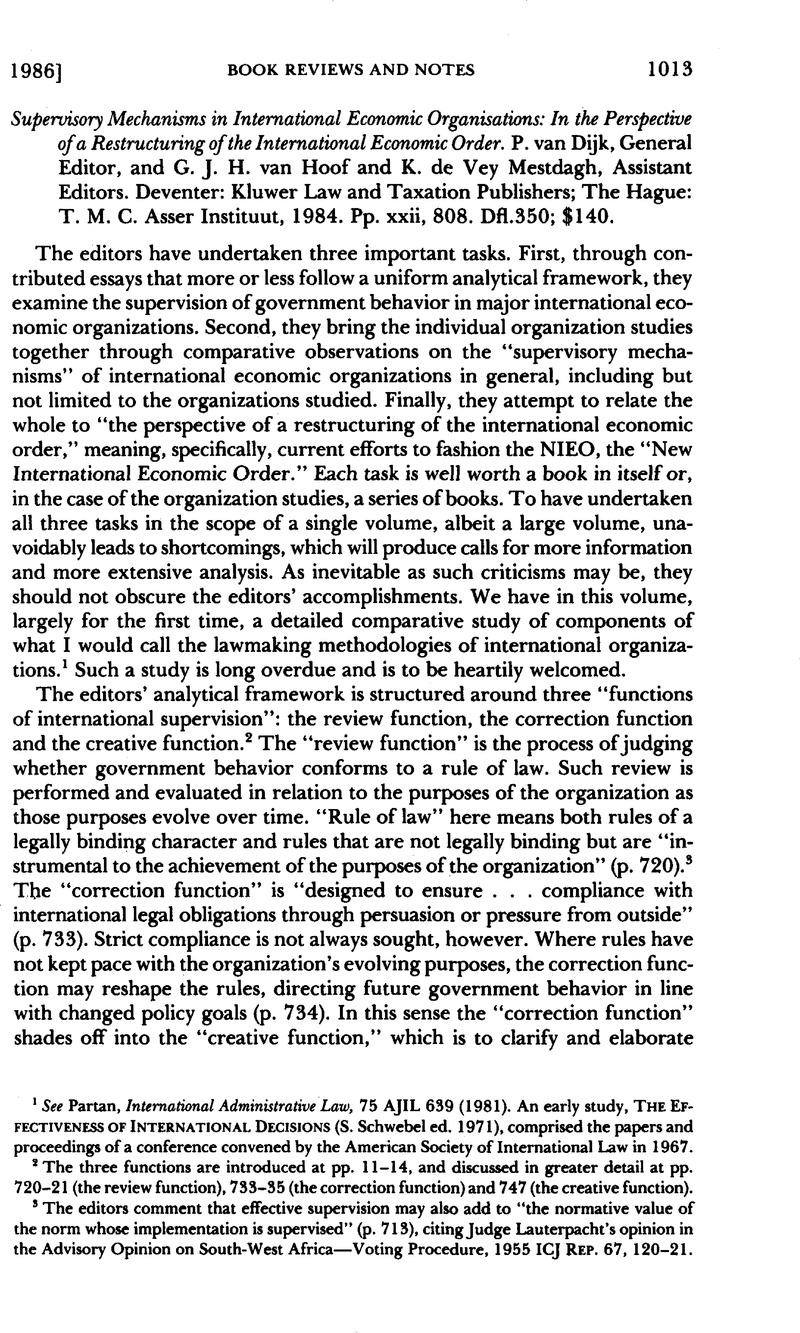No CrossRef data available.
Published online by Cambridge University Press: 27 February 2017

1 See Partan, , International Administrative Law, 75 AJIL 639 (1981)Google Scholar. An early study, The Effectiveness of International Decisions (S. Schwebel ed. 1971), comprised the papers and proceedings of a conference convened by the American Society of International Law in 1967.
2 The three functions are introduced at pp. 11–14, and discussed in greater detail at pp. 720–21 (the review function), 733–35 (the correction function) and 747 (the creative function).
3 The editors comment that effective supervision may also add to “the normative value of the norm whose implementation is supervised” (p. 713), citing Judge Lauterpacht’s opinion in the Advisory Opinion on South–West Africa—Voting Procedure, 1955 ICJ Rep. 67, 120–21.
4 See the editors’ discussion of the NIEO and the development of international law at 707–13.
5 Supervision through GATT procedures is described and evaluated at 71–189; the effectiveness of GATT supervision is discussed at 194–204.
6 See, e.g., the UNCTAD study, written by assistant editor K. de Vey Mestdagh, at 277–349. UNCTAD supervision is described at 297–330; effectiveness is discussed at 330–41.
7 See pp. 381–86 and 393. The IMF study was written by R. Barents.
8 See pp. 692–707 and 761. See also the IMF study at 384–91.
9 The editors’ comparative observations are followed by excursive comments on supervision of codes of conduct for multinational enterprises (pp. 761–77) and “concluding observations” on the “need for development from power-oriented towards role–oriented structures” (pp. 777–95).
10 Pp. 724–33, especially the list of factors given at 728–29.
11 There are also references to studies of the European Communities and other organizations not directly covered in the work under review.
12 See also the OECD study at 532–33, 536, 541 and 553–54.
13 P. 737, citing to the OECD study at 588–89.
14 In addition to the lack of an index, which I consider essential in a work of this kind, and the conceptual problems mentioned in this review, the work does not include biographies of either the editors or the authors of the individual organization studies. The individual organization studies are also not dated, but the documentation shows that in most cases research probably concluded in 1980.